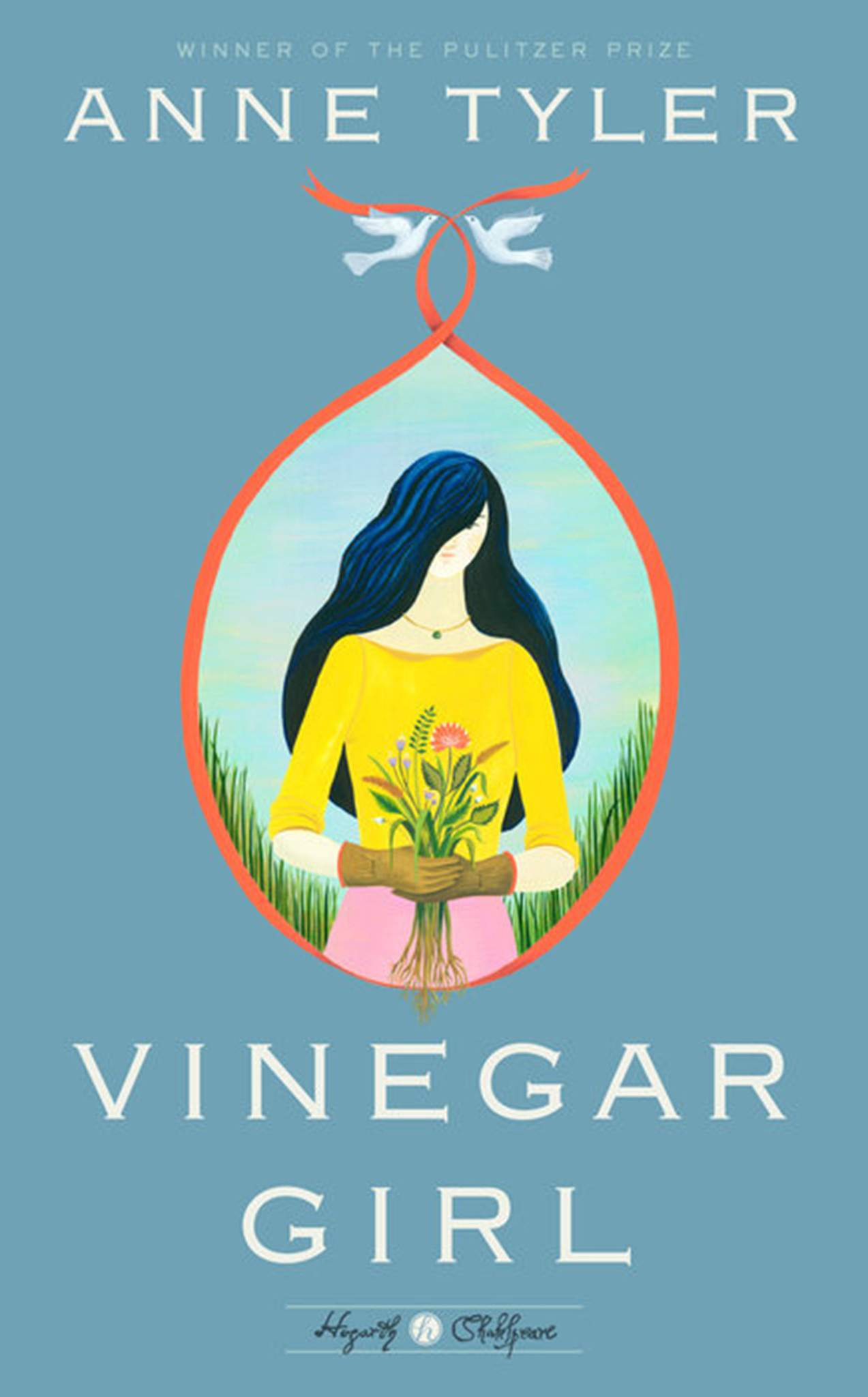Vinegar Girl (Hogarth Shakespeare)
The Taming of the Shrew Retold
Anne Tyler
In October of 2015, Hogarth, an imprint of publishing giant Penguin Random House, launched a literary series where Shakespeare’s works would be “retold by acclaimed and bestselling novelists of today.” One of these is Vinegar Girl, a retelling of The Taming of the Shrew by Pulitzer Prize winning author Anne Tyler.
Vinegar Girl tells the tale of 29 year old Kate Battista, who moved back home after being kicked out of college for telling her botany professor that his explanation of photosynthesis was “half-assed.” Now she takes care of her absent-minded, eccentric scientist father and 15 year old coquettish sister, Bunny (their mother, who was absent at best, died when Bunny was born). And she gardens, even though their yard has too much shade to grow much, and works as a teacher’s assistant at a local preschool, even though she doesn’t particularly like children.
Children like her, though. Parents and school administrators, not so much. You see, Kate is pretty blunt, unwilling to sugarcoat, deflect, or mitigate what she has to say, which at times puts her at loggerheads with “polite” society. Unlike Shakespeare’s Katherine, Anne Tyler’s Kate does not have an acid wit meant to belittle, just a no-nonsense one that is honest without filters.
And Ms. Tyler’s Petruchio is also skewed to a slightly different hue, to an equally wonderful effect. Pyotr Cherbakov has been Dr. Battista’s research assistant for almost three years, brought to the USA on an O-1 visa (reserved for individuals with extraordinary abilities or achievements). But funding for their research is drying up, and Pyotr will have to return to his own country when his visa expires in two months, unless another way is found for him to stay – like, say, marrying an American.
Pyotr is large, blonde, a bit obtuse when it comes to many social interactions, not exactly fluent in English although he delights in learning new idioms. He doesn’t seem to have a guileful bone in his body. He carries the same kind of artless confidence as Kate, but rather than coming from a place of insensate conviction, his comes from a kind of naiveté, a purity of belief that everything will work out.
The major crux of the story, of course, is the manufactured relationship between the somber, no nonsense Kate and the cheerful, no worries Pyotr. Kate is hurt by her father’s insistence that she help the family cause by marrying his assistant, since it’s unlikely she’ll have any other serious relationships. Pyotr is fully aware that Kate not only doesn’t love him, she probably doesn’t even like him, but that doesn’t keep him from a kind of coltish wooing in an attempt to make her more amenable to keeping him around. He has no problem with it being a marriage of convenience, and no intention of forcing more upon Kate than her signature on the marriage certificate and a semblance of a relationship, for Immigration purposes – but he also doesn’t want her to be miserable.
The deviations of Vinegar Girl from The Taming of the Shrew are obvious: there are few subplots with Kate and Pyotr always at center stage, but there are enough touchstones to keep both stories grounded in each other. Kate is not a shrew as much as an unapologetic pragmatist, Pyotr is not a fortune seeker as much as a good natured fellow who just wants to stick around. They may not be compatible, but their conflict is with expectations, not of each other – even though the incompatibilities between them are touching, humorous, and seemingly insurmountable. Until, of course, they aren’t.
Vinegar Girl is, frankly, a delightful book. Kate is a marvelous character, and Pyotr strikes all the right notes to keep from becoming a sidekick. Kate’s father is ridiculous and perfect in being the unwitting cause for angst on many levels, and Bunny injects the narrative with an appreciated anchor to “normalcy” while still being comedic. The novel could stand on its own, actually, but is even more enjoyable seeing its relationship with the Bard’s work. A fine read, indeed.
~ Sharon Browning

